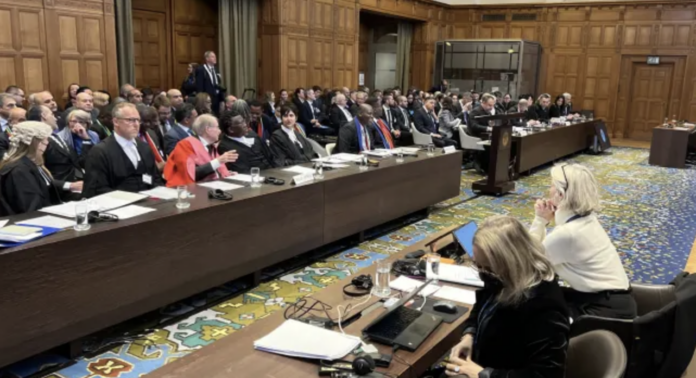KUALA LUMPUR, Jan. 12 – The Malaysian government should move beyond the role of a passive observer and consider the possibility of intervention in South Africa’s genocide case against Israel at the International Court of Justice (ICJ), said Centre for Human Rights Research & Advocacy (CENTHRA).
In a statement, founder and chairman of CENTHRA Azril Mohd Amin said the government should recognise the responsibility and opportunity to contribute to the pursuit of justice.
He said ICJ provides two avenues for a State to intervene, namely under Article 62, where a state can submit a request if it believes it has a legal interest affected by the case, and under Article 63, which allows a State Party to a relevant convention to intervene when the construction of that convention is in question.
“Historically, attempts to intervene under both Article 62 and Article 63 are rare, highlighting the significance and impact that active participation by a concerned state can have in shaping the court’s decisions,” he said.
Furthermore, Azril said Malaysia can also take a prior step by requesting copies of pleadings and documents in the case under Article 53(1) to provide an opportunity to stay informed and engaged in the proceedings.
On Thursday, the ICJ at The Hague convenes to hear the lawsuit filed by South Africa in response to Israel’s ongoing military assault on Gaza.
The proceeding is streamed live and on-demand on the court’s website and the United Nations (UN) Web TV.
CENTHRA also urged Malaysians to follow these proceedings closely to amplify the voices of those advocating for justice and send a clear message to governments worldwide that they, too, could be held liable for violations of the Genocide Convention.
At least 23,357 Palestinians have since been killed, mostly women and children, and 59,410 others injured in Israel bombardment of Gaza since Oct 7 last year, according to Palestinian health authorities.
The continuous onslaught has left Gaza in ruins, with 60 per cent of the enclave’s infrastructure damaged or destroyed and nearly 2 million residents displaced amid acute shortages of food, clean water, and medicine, international media reported.
















